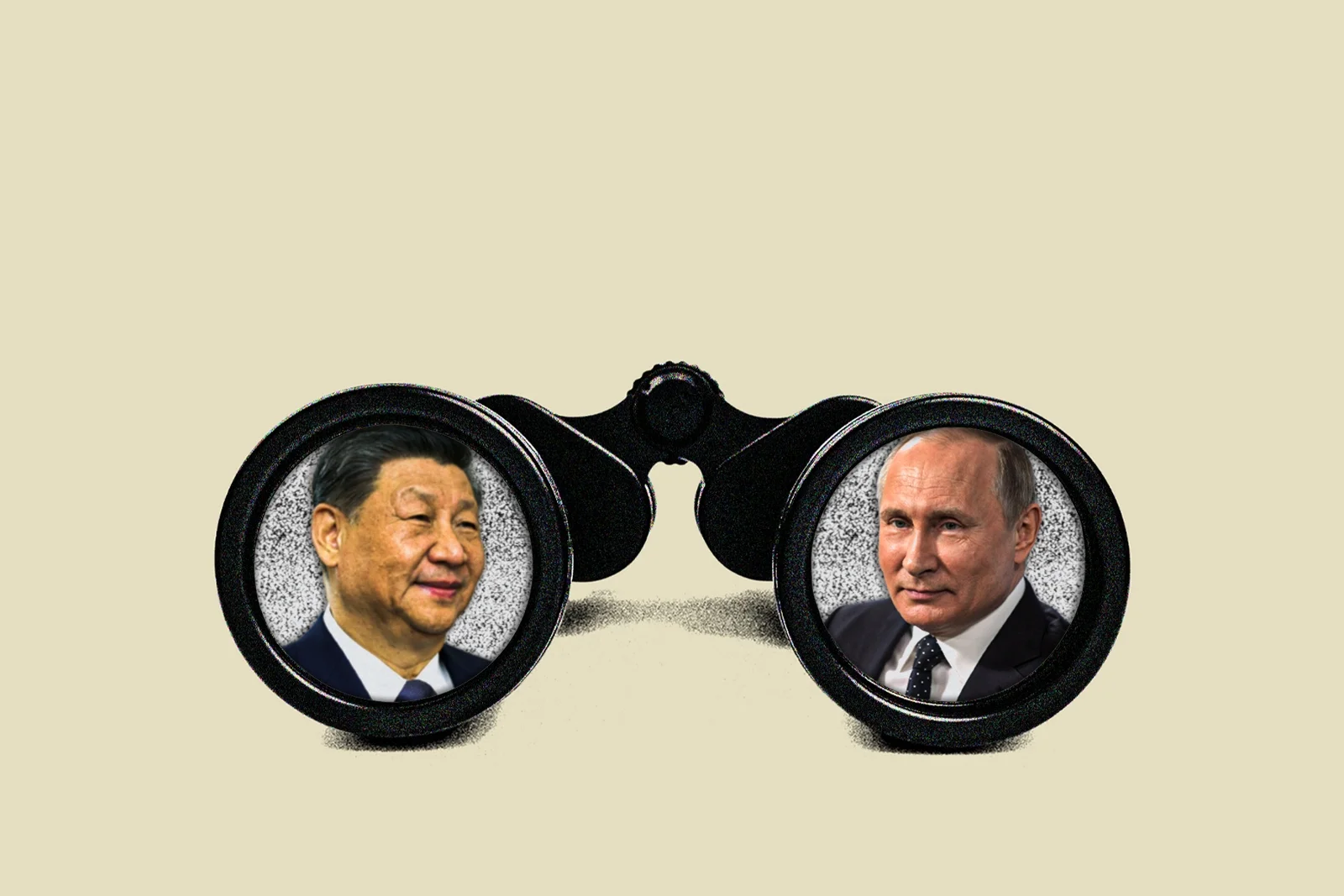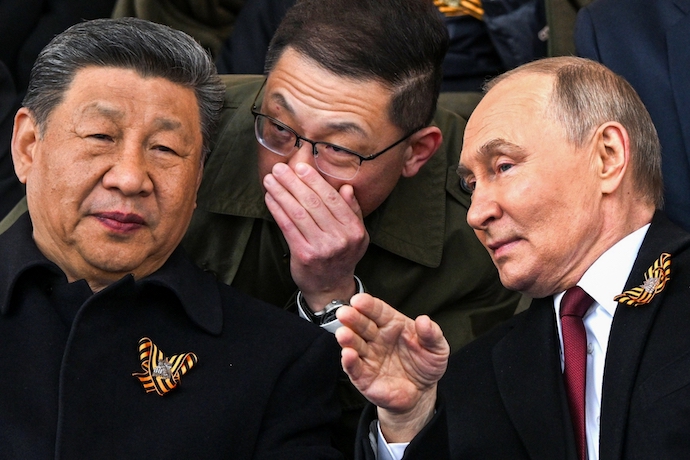
How the West is Losing the Spy War
Counterintelligence, once the bread and butter of Western national security, is now a fading priority—neglected, outpaced, and increasingly overwhelmed. Designed to shield governments from foreign infiltration, it was a Cold War imperative. Back then, espionage was not just feared, it was expected. Foreign agents operated across every major capital, and Western intelligence agencies responded with sophisticated counter-networks. But in today’s geopolitical climate, the machinery of counterintelligence has rusted. The enemies, meanwhile, have grown more sophisticated.
In recent years, a disturbing wave of scandals and investigations has gripped both North America and Europe. Foreign agents have embedded themselves in politics, media, academia, and intelligence circles—quietly compromising the institutions meant to defend democracy. The signs are no longer subtle: counterintelligence, as a discipline and a defense, is in steep decline.
A New Axis, A New War
Over the last decade, a new axis has emerged—one that thrives not on conventional warfare, but on the hybrid kind: cyberattacks, media manipulation, social disruption. At the forefront of this campaign is Russia, operating with a renewed sense of purpose and aggression since its 2022 invasion of Ukraine. Its strategy is simple and brutally effective: destabilize Western institutions from within.

Russia’s hybrid warfare arsenal blends old-school espionage with new-age influence. It traffics in disinformation, supports radical movements, and floods the West with agents—many unregistered—burrowing into key cultural and political institutions. Since 2016, Moscow has capitalized on the rise of populist movements across Europe and the U.S., many of which have quietly benefited from Russian financial or informational support. Brexit, American isolationism, and the electoral gains of far-right parties across Europe are not coincidences—they are victories in an undeclared war.
Even immigration is now weaponized. Russia, along with its proxies, reportedly facilitates the flow of migrants from Africa and the Middle East toward Europe’s borders. The resulting strain on social systems has helped propel anti-immigration parties—often with Kremlin ties—into power. Countries like Hungary, Slovakia, and Austria now face internal shifts that weaken the EU from within. Hungary, in particular, is emerging as a potential “Trojan horse” inside both NATO and the European Union, with Chinese and Iranian influence deepening alongside Russian interests.
The Quiet Infiltration
This isn’t just about political movements or ideologies. The intelligence war has already breached the gates.
In the UK, Spain, Germany, and the Balkans, Russian-linked operations have led to arrests and expulsions. FBI and DOJ reports in the United States reveal how Russian information campaigns are amplified through alt-media ecosystems to sow mistrust and confusion.
Germany’s Alternative for Germany (AfD) and even mainstream parties like the Social Democratic Party of Germany (SPD) and the Christian Democratic Union of Germany (CDU) have faced scrutiny over ties to Russian energy interests. Meanwhile, Hungary’s ruling Fidesz party has become increasingly isolated within the EU due to its overt Kremlin affiliations.

But Russia is not acting alone. China, too, has ramped up its intelligence operations. Its unregistered agents in the U.S. target dissidents and aim to sway policy. The arrest of Linda Sun, a former aide to New York Governor Kathy Hochul, sent shockwaves through political circles.
Iran, for its part, has deployed operatives across Europe, the U.S., and the Gulf. Their goal: silence dissidents and influence narratives tied to Israel’s ongoing conflicts. The recent murder of a Chabad rabbi in the UAE, allegedly linked to Iranian intelligence, underscores the escalating stakes.
The Long Decline
How did it come to this? The rot, many argue, began with the end of the Cold War. The fall of the Soviet Union lulled the West into a state of complacency. Counterintelligence budgets shrank. Resources were redirected. Then came 9/11—and with it, a near-total pivot to counterterrorism. Nation-state threats faded from the strategic radar.
The Iraq War further damaged public trust. When U.S. and UK intelligence was used—some would say manipulated—to justify a war over nonexistent weapons of mass destruction, it not only discredited the agencies involved but cracked the social contract. In the vacuum of trust, adversaries found opportunity.
Russia and China invested heavily in media manipulation, social media disinformation, and cyberwarfare. Western governments, meanwhile, often found themselves paralyzed by legal constraints or political infighting. While media outlets like RT have been labeled propaganda arms of the Kremlin, and apps like TikTok are debated for their links to Beijing, responses remain fragmented and often toothless.
Even Western allies haven’t remained on the sidelines. Turkey has been accused of targeting political dissidents in the U.S. and Europe. New York Mayor Eric Adams will forever be tarred over alleged ties to Turkish interests, including efforts to downplay the Armenian Genocide. Saudi Arabia, for all its defense ties with Washington, executed one of the most brutal acts of modern intelligence warfare with the murder of journalist Jamal Khashoggi. Qatar uses its economic influence—particularly in energy markets—to project soft power, allegedly funding university protests and maintaining links to extremist groups, while playing both sides in the ongoing Israel-Hamas conflict.
What Now?
The urgency is clear. Western democracies must treat counterintelligence not as a relic of the Cold War but as a vital shield in the 21st-century battlespace.
The Five Eyes alliance—Australia, Canada, New Zealand, the UK, and the U.S.—offers a template for how allied democracies can pool resources and intelligence. But broader and deeper collaboration is needed, especially within NATO and the EU. Funding for counterintelligence agencies must increase. Legal frameworks must evolve to account for modern hybrid threats. And most importantly, political will must be restored.
Adversaries are exploiting the West’s open societies and slow-moving bureaucracies. Investigations into foreign influence can take years, hobbled by legal loopholes and partisan gridlock. Meanwhile, Russia, China, Iran, and others move quickly, leveraging media, migration, and money to quietly corrode democracies from the inside.
If the West is entering a new era of geopolitical confrontation, it must do so with the lessons of the Cold War in hand. That includes the uncomfortable but necessary work of counterespionage: finding spies, disrupting networks, and exposing foreign influence wherever it hides.
Because while today’s threats don’t always come with tanks or missiles, they do come with hashtags, cash, and disinformation. And for now, they’re winning.
